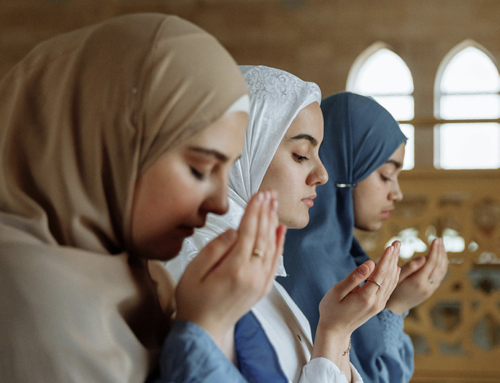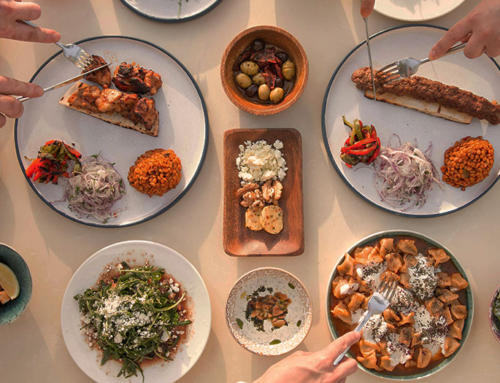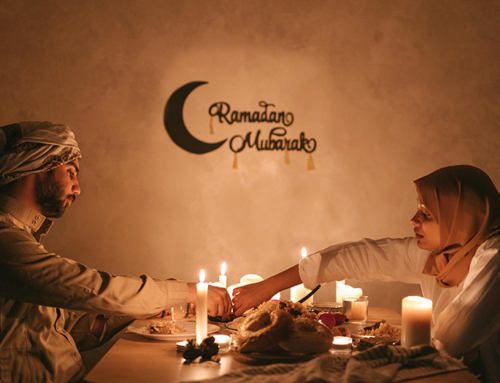By: Farhana N. Shah
Celebrating Eid in the Classroom: How Teachers Can Honor Muslim Students’ Faith
Celebrations are part of all cultures and religions.
Many Muslim-majority countries have diverse cultural holidays; however, there are only two major holidays that all Muslims celebrate. Each is celebrated at the end of an Islamic ritual.
The first of these holidays comes after the completion of Ramadan and is called Eid-ul Fitr which means the “festival of fast-breaking.” It is a celebration of thankfulness for being able to fast the whole month and for the self-control and positive habits formed in the 30 days.
The second major holiday Muslims celebrate is called Eid-ul Adha means “festival of sacrifice.” This holiday takes place after the Hajj (Pilgrimage) in Mecca, Saudi Arabia. This holiday is celebrated in honor of the sacrifice that Prophet Abraham and his son Ismael were willing to make to show their dedication, commitment, and trust for Allah.
How Muslims Celebrate Eid: A Guide to the Two Major Muslim Holidays
Both holidays include celebrations with family, friends, and communities. They usually involve the following practices:
- Congregational prayers in the morning in near-by mosque or Muslim community center
- Donning of new clothes
- Gift giving to family and friends
- Charity to those less fortunate
- Visiting homes and open-houses of family and friends; eating of sweets (special dishes on this day- like Christmas cookies, etc.); other social gatherings and receptions
- Greeting one another with: “Eid Mubarak” (Have a blessed Eid).
Tips for Recognizing Eid-ul Fitr and Eid-ul Adha in the Classroom
More public school systems are beginning to recognize these two as holidays, this is important because it allows Muslim students to feel that their faith is important in the U.S.; their country of birth (as majority of the students are U.S. born or natives).
What are some ways teachers can recognize Eid-ul Fitr or Eid-ul Adha to build relationships with their Muslim students?
- They can learn how to pronounce and greet them when the two Muslim holidays (Eid al-Fitr and Eid al-Adha) fall during school year.
- Depending on the age of the student, either have the parent or student share information about the holiday and its significance.
- Across content-areas (may vary by elementary or secondary school levels): festive music and artwork; learn about holidays in the Muslim-majority countries, etc.
How to Make Muslim Students Feel Included in the Classroom
Furthermore it is important to understand that Muslims students do not celebrate Christian holidays such as Christmas, Easter, or Valentine’s day because they are Christian holidays. Questions often arise, especially in the elementary settings about Muslim students feeling left out or compelled to participate even though they may not understand the event or have differing beliefs. Teachers can make their Muslim students feel part of the class during this time by ensuring activities are inclusive. For instance, instead of singing Christmas carols or coloring Christmas trees, teachers can focus on the theme of winter with trees, warm drinks, and gingerbread cookies.
Some Muslim students do not celebrate Halloween because they consider it to have pagan origins. However, others might choose to participate because they do not consider it to be a religious holiday.
How to Be Inclusive of All Students Without Taking Time Out of Academics
Religious Diversity fosters a culture of respect because everyone is recognized; however, it can be daunting if schools must take time out for every holiday. It is not the responsibility of schools to celebrate, but rather recognize. There are many ways to be inclusive of all students without taking time out of academics. For instance, instead of lumping all holidays in December because of Christmas, plan it so each holiday is recognized throughout the year. A good way to find out which holidays are celebrated is by having students complete a survey about themselves or emailing parents. This is something schools can add to their school calendar and share with PTA and community, so all faiths and ethnicities are recognized.
Farhana N. Shah is a Content Specialist in Montgomery County Public Schools. She holds a master’s degree in Education along with multiple certifications. Her career spans over fifteen years of teaching in the classroom, leading teams, evaluating teachers and providing professional development in the United States and abroad.
Got Questions?
We have Answers. Get in touch now.








